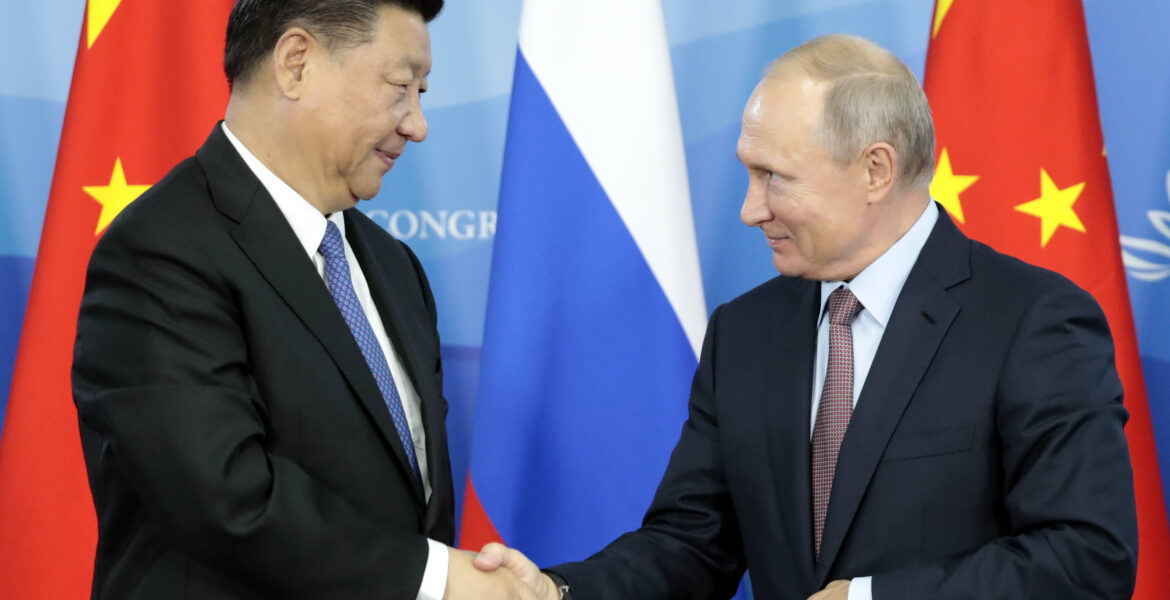After Ukraine invasion in February by Russia, China realised that Russia has fewer buyers for its Ural crude oil, with some foreign governments and companies imposing sanctions and deciding to shun its energy exports. However, it chose not to publicly condemn Russia’s unprovoked full-scale invasion of Ukraine for economic interests. After facing tough sanctions, Russia offered discount on oil to China and other countries, which Beijing happily accepted and started buying in large quantity.
China has remained one of the largest buyers of Russian oil before the Ukraine war. The adverse impact of Covid-19 pandemic on the global economy had knocked oil prices and futures contracts down to levels not seen in decades. According to Asia Times, prices for global oil had collapsed by more than 60 per cent since the start of 2020 due to the one-month long oil price war between Russia and Saudi Arabia, the world’s second and third largest oil producers. Covid-19 lockdowns affecting around one-third of the world’s population, meanwhile, had killed demand for the fuel. The rise in imports came amid the worst global health crisis in over a century, causing China to post its weakest Q1 economic performance since at least 1992 at -6.9 per cent compared to the same period a year earlier.
In early 2020, the Middle Kingdom’s oil imports rose 4.5 per cent in March year on year to 9.68 million barrels per day (bpd), China’s General Administration of Customs data shows. China’s January and February oil imports averaged 10.47 million bpd, while its first quarter (Q1) oil imports averaged some 10.2 million bpd, representing a 5 per cent year on year rise.
China has defended purchase of oil from Russia, saying it must source crude oil from wherever it is available at a cheap rate. The US government has acknowledged that it can’t stop these purchases because there are no secondary sanctions on countries doing business with Russia. And China’s state-owned oil enterprises are increasingly using the Chinese renminbi rather than the US dollar to finance oil purchases from abroad. China also continues to buy oil from the Middle East as well Angola and Brazil, although in July, Russia remained its top supplier for the third month in a row. According to a recent analysis by CNBC of data from commodity data firm Kpler, after the invasion in late February, Beijing’s purchases of oil from Moscow only increased: China bought 14.5 million barrels of oil from Russia from March to May, which represents a three-fold increase from the same period last year.
Interestingly, China’s total oil reserve capacity is a tightly guarded state secret and Beijing does not publicly disclose data on inflows into both strategic and commercial inventories.
Under the current scenario, diplomatic relations between Russia and China are getting stronger by the day as Russia has been becoming totally dependent on China. But for China’s reliance on Russia as a geopolitical partner, however, is more of a dilemma especially given its stance for peace. Ukrainian analysts stated that China has become crucial for the survival of Putin’s Russia as crippling Western sanctions have left Moscow with no alternative than to fall deeper into Beijing’s embrace. China has virtually become the largest market for Russia, also because Moscow has no alternatives in terms of imports of critical tech like cars, cellphones, various equipment and machinery that is now banned from the West.
China’s imports from Russia – mostly oil and natural resources – jumped a record 80 per cent in May over the same month last year, according to Oksana Lesnyak, Head of the Asia-Pacific Bureau of the Kyiv-based Center for Global Studies Strategy XXI. Chinese car brands ranked second in sales in Russia in July while Chinese smartphones accounted for two-thirds of all new sales in Russia between April and June, Lesnyak said.
China, a key buyer of Russian oil, is expected to demand heavy discounts for the commodity. National Anti-Corruption Bureau of Ukraine’s oversight committee head, Mark Savchuk, stated that Russia would literally become China’s gas station. “I don’t think China will go all out to try to make Russia its really close strategic ally”, said Oh Ei Sun, senior fellow at the Singapore Institute of International Affairs. “Except for its military prowess, there is nothing much to speak of. Its economy is equivalent to one of the more well-to-do provinces in China, perhaps Guangdong.”
Given that China is experiencing financial difficulties with its COVID-19 lockdowns and property crisis, the Chinese could “really use a trading partner that can sell its oil at a 50% discount,” said Savchuk, who specializes in transparency and the macroeconomic outlook of the energy sector.
Observers expect China to continue to stay the course, refraining from giving outright support to Russia, while calling for an end to the war China is both a friend of Russia as well as a friend with Ukraine. “Lots of these things can be done more constructively behind the scenes than in the limelight”, China expert Victor Gao, a professor at China’s Soochow University and vice president of the Center for China and Globalization. “As this relationship develops, Russia’s position will become weaker, hence China will be pushing for higher discounts on Russian oil and gas exports”, he added. The European Union’s latest oil sanctions on Russia are slated to be imposed in December. They will include a ban on insurance for tankers transporting Russian oil. In February next year, additional sanctions on oil products and a possible price cap on Russian gas will come into force.
This seems a perfect secarion for China to demand for more discount from Russia on oil to fill its reserves.
Valerio Fabbri is a contributor to Portal Plus.


